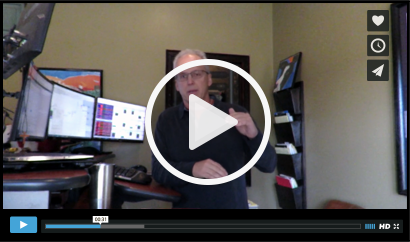I really don’t want to go to my grave still searching for the real reason for the economy’s trashing. Since “inflation” can be readily dismissed, would you mind sharing some of the “other motives” you have alluded to in past reports?
There has been much speculation as to what movtivated the Fed to take such a sustained assault on inflation that was not present, citing as support such things as consumer spending, employment, home sales and business spending as flashpoints for inflation. After diligently supporting free markets, the Fed started takign a different approach in 1996 with the irrational exhuberance statement. It continued the verbal attack and finally starting hiking rates when there was no sign of actual inflation. It re-adopted a Phillips Curve model of economics where low unemployment and high consumer demand supposedly led to inflation. That was 180 degrees from the prior position of fewer controls on capital and free markets that would let supply meet demand based on the decisions of the private sector. History had shown that this was the best scenario for allowing growth yet avoiding bottlenecks in supply and demand that could lead to shortages. Shortages mean more dollars chasing fwere goods, and that means inflation.
Why the change? One theory is that the Fed realized that it had a tiger by the tail, that it had continually bailed out the market with rate cuts at any sign of trouble, and that it believed that if it did not start bringing things down slowly there would be a massive economic upheaval for the whole world. So, start talking things down and then raise rates gradually in a controlled fashion. In other words the Fed was going to do what it had never been able to accomplish: a slow descent to ‘sustainable’ growth levels. If that was the Fed’s goal, it obviously failed as it always fails. The U.S. is in recession and the world has followed it down. All of those foreign countries wanting the U.S. to raise interest rates to avoid a world recession missed the boat as well. There are those that believe that the Fed has not only failed in preventing recession, but that the whole fabric it has tried to weave to prevent a global economic meltdown of biblical proportions by rescuing the market whenever needed will fail as well. They seem to believe we are heading back to stone knives and bear skins.
Another theory is that the ultra wealthy where concerned with the new wealthy. Not just millionaires, but the billionaires the new technology was creating. The Fed is not a U.S. entity. It is owned by foreign interests. The theory is the ultra wealthy felt threatened by the new wealth being created, and instructed the Fed to and other central banks to slow down this expansion of technology. The idea is, even though the ultra wealthy would lose money as well, their relative wealth would remain the same compared to the rest of the world, and their control would be maintained. These interestes also control or have major influence over world oil supplies, and hence the sudden rise in oil prices and the claims of no refining capacity when just a couple of months earlier the world was awash in oil. The loos ends do not tie together as far as explanations, and we pointed these out continually.
Then there is the theory that the U.S. was just getting too far ahead of the rest of the world in the technology and the rest of the world wanted the gap to close a bit. The Fed was under a lot of pressure to slow the U.S. down from foreign sources. Again the Fed is not a U.S. agency, and the foreign central banks and the Fed all acted together to slow things down. Foolishly, they seemed to ignore what had happened since the Soviet Union fell and there was only one (though China is there) superpower and a world economy that was valued in U.S. dollars: as the U.S. went, the world went.
Any way you look at it, if the Fed just wanted to slow things down to a sustainable level, it missed, once again demonstrating its poor marksmanship when it comes to controlling the economy. It cannot and will not ever be able to fine tune the economy. It did nothing to create the prosperity overtly; it just kept its hands off. It did, however, play a huge role in killing the prosperity when it started to meddle once again, whatever the underlying reasons were for it doing so.

